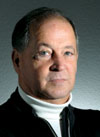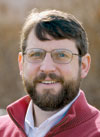 |
|
Jim Dupont-R |
Flathead County commissioners wield exceptional power. From which roads are paved to how neighborhoods are zoned, the contest between Jim Dupont and Steve Qunell is arguably the most important on the ballot.
On Nov. 4, county residents will choose between Dupont, a Republican and former Flathead County sheriff, and Qunell, a Democratic stay-at-home dad, freelance writer and Whitefish planning board member.
 |
|
Steve Qunell-D |
Ultimately, though, voters are choosing who gets the chance to guide the Flathead’s future.
Commissioners serve six-year terms and, with only three positions on the commission, hold considerable sway over a wide range of issues. And whomever is elected will inherit a lengthy list of challenges: debates concerning land use, development and environmental protection; dwindling county budget coffers; the ongoing takeover of the “planning doughnut” – and the lawsuit Whitefish filed against the county because of it.
And while growth has slowed, it – and the stresses that accompany it – hasn’t disappeared: The county remains home to three of the fastest-growing cities in the state.
“This race is about deciding what we really value here – things like clean air and water, or agricultural lands and families, open space – and preserving them,” Qunell, 37, said. “The future of our lifestyle here is at stake.”
On that point, at least, Dupont, 61, and his opponent agree: “There will certainly be challenges for the commissioners in the next few years. We’re shaping the future of the county.”
From there, the differences are stark.
Qunell, vice-chair of the Whitefish City-County Planning Board, has been labeled a “socialist,” a liberal taken with planning and zoning rules and as an “anti-growth” candidate. He dismisses the claims as a scare tactic aimed at getting people to vote against him.
“If I’m anti-growth because I’m from Whitefish and we support planning there, why is Whitefish the fastest-growing town in the state?” he challenges.
The way Qunell sees it, when properly implemented land-use controls can actually protect property rights and prevent many of the struggles that have played out here in recent years, such as debates over gravel pits, large subdivisions and roads.
Planning, he says, offers predictability for county residents and identifies and protects valuable assets like agricultural land. Planning can also protect the environment, which, in turn, attracts people and businesses.
“We can keep the things that are special about this place and grow at the same time,” he said. “Businesses won’t want to invest in an area that doesn’t identify its assets and plan for the future.”
A self-proclaimed property-rights champion, Dupont calls blanket approaches to planning detrimental, and advocates evaluating regulations like streamside setbacks on a case-by-case basis. Existing land-use rules should be evaluated to decide whether they need to be bolstered or weakened, he said.
Dupont’s land-use positions have garnered him significant support among area Realtors, developers and construction businesses.
“I’m more on the conservative side, where the less government the better,” he said. “Every time you make a rule on land use, you’re restricting somebody’s rights. That’s not to say regulations should never happen – you need rules of law to live in a productive society – but, in general, my rule is less is better.”
Protecting property rights ranks along with roads and public safety as Dupont’s three main election platforms, which he believes are the primary responsibilities for the office of commissioner. They’re interconnected, he said, because property rights determine growth, growth impacts roads and both influence public safety.
Rather than spend voter money on items like the conservation bond on this year’s ballot, he said the commission should focus on the basic needs the county must provide its citizens – especially in the face of a tight budget.
In his tenure as sheriff, Dupont said he learned the workings of other county departments, experienced a myriad of issues facing the county and, most importantly, balanced a large budget.
“We need to make sure what we’re doing is the wisest use of public money at this time,” he said. “We’re going to need to make some tough choices about what we can afford.”
In the case of gravel roads, Dupont and Qunell both advocate paving the most heavily trafficked and looking for new revenue sources. Qunell would squeeze efficiencies from the existing system. Dupont would too, but he also is considering added fees, perhaps on vehicle registrations.
Dupont has drawn ire from gravel pit neighbors and gravel road residents for his hard line approach: “It’s like living next to an airport – you should expect planes,” he said. “If you live next to gravel pits you should expect gravel trucks. There needs to be straightforward communication between the two groups about what to expect.”
Qunell, who has spent the campaign season attending as many public meetings as possible, respects Dupont’s experience, but doesn’t think it necessarily translates to the commission.
“You can be a great sheriff, but not understand the complexities of growth and planning that need to happen here,” he said. “This is about shades of gray; not black and white, right or wrong.”
By his own account, Qunell is the underdog in this race.
“It’s a relative unknown against a four-term sheriff,” he said. “Who’s got the name recognition and biggest signs in all the best locations? It’s not Steve Qunell.”
Qunell was born near Chicago but spent most of his childhood in South Carolina, where he later got a degree in history from the University of South Carolina.
In the eight years since he and his wife, Jessica, a West Valley teacher, settled in the Flathead Valley, Qunell, who also has a master’s degree in policy and management from Harvard, has framed houses, built cabinets, taught at Flathead Valley Community College and a local academy and investigated child abuse. He currently works as a part-time writer and stay-at-home dad for his two daughters.
Since moving to Flathead County from San Diego in 1978, Dupont spent close to 30 years working in law enforcement – 16 of those as sheriff. During his time in California, he owned two small businesses and worked as a deputy sheriff for eight years. Prior to that, he also served in the Navy and flew transport flights in Vietnam.
His tenure as sheriff has provided him considerable name recognition: Dupont won the June 3 Republican primary by a landslide over incumbent Gary Hall. He also belongs to a formidable party here in Flathead County.
Four years ago, some moderate Flathead Republicans crossed party lines, banding together to help elect Democrat Joe Brenneman. Otherwise, the office has remained a GOP stronghold in recent decades.
Still, Qunell thinks party politics will matter less in this election, where he says voters are focused on issues related to the future of the county.
“We all live here because we value the quality of life, but in the past years the county’s priorities have been all out of whack” he said. “We need to do a better job of maintaining that quality of life and voters, I think, will vote for the candidate that provides their hope for the future.”